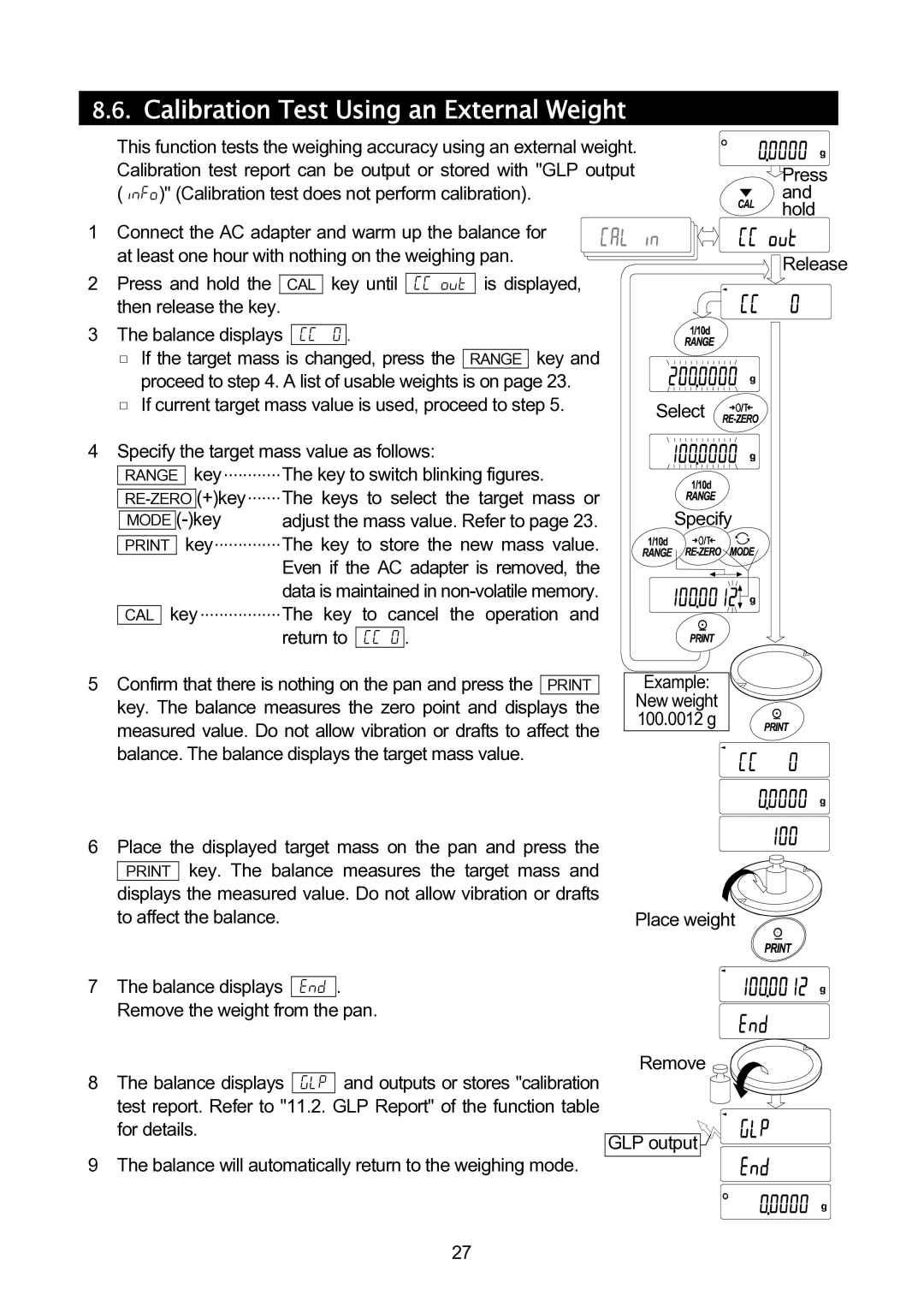
8.6.Calibration Test Using an External Weight
This function tests the weighing accuracy using an external weight. Calibration test report can be output or stored with "GLP output (info)" (Calibration test does not perform calibration).
1 Connect the AC adapter and warm up the balance for at least one hour with nothing on the weighing pan.
2Press and hold the CAL key until CC out is displayed, then release the key.
3 The balance displays CC 0 .
If the target mass is changed, press the RANGE key and proceed to step 4. A list of usable weights is on page 23.
If current target mass value is used, proceed to step 5.
4 Specify the target mass value as follows:
RANGE key............The key to switch blinking figures.
|
| adjust the mass value. Refer to page 23. | |||||
| MODE | ||||||
|
|
|
| key..............The key to store the new mass value. | |||
|
| ||||||
|
|
|
|
| Even if the AC adapter is removed, the | ||
|
|
|
|
| data is maintained in | ||
|
|
| key.................The key | to cancel the operation and | |||
| CAL | ||||||
|
|
|
|
| return to |
| . |
|
|
|
|
| CC 0 | ||
![]() Press
Press
and hold
![]() Release
Release
Select ![]()
Specify
5 Confirm that there is nothing on the pan and press the PRINT key. The balance measures the zero point and displays the measured value. Do not allow vibration or drafts to affect the balance. The balance displays the target mass value.
Example:
New weight 100.0012 g
6 Place the displayed target mass on the pan and press the |
|
PRINT key. The balance measures the target mass and |
|
displays the measured value. Do not allow vibration or drafts |
|
to affect the balance. | Place weight |
7 The balance displays end . Remove the weight from the pan.
8The balance displays glp and outputs or stores "calibration test report. Refer to "11.2. GLP Report" of the function table for details.
9The balance will automatically return to the weighing mode.
Remove ![]()
![]()
![]()
![]()
GLP output![]()
![]()
27
